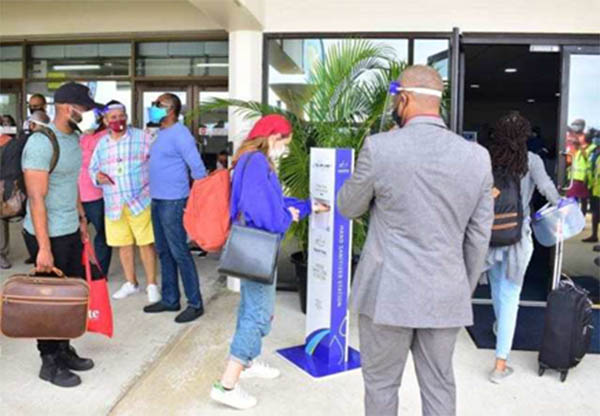The International Monetary Fund’s (IMF) most recent Regional Economic Outlook excerpts which were reported in several Caribbean territories over last weekend have asserted that Latin America and the Caribbean have suffered considerably more than other regions, in both human and economic terms on account of the still raging COVID-19 pandemic.
While the hemisphere has only 8.2% of the global population, it was dealing with 28% of the COVID-19 cases and 34% of the deaths by September, the Fund informs.
Asserting that the impact of COVID-19 on the hemisphere was accentuated by some of the region’s “structural characteristics,” the IMF notes, first, that comparatively more people work in activities that require close physical proximity while fewer people have jobs in which teleworking is feasible.
The Fund estimates that close to 45% of the jobs in the hemisphere, mostly in restaurants, retail stores and public transport, are in what it describes as contact-intensive sectors while only around one in five jobs can be executed remotely – 50% less than in advanced economies. It says that these features in addition to the high levels of informality and poverty that are present in Latin America and the Caribbean helped to create a “historic collapse in economic activity.
And the Fund says that while evidence of a rebound in economic activity begun to emerge by May, supported by the easing of lockdowns and consumers and firms adopting to social distancing, continued high contagion and death rates coupled with concerns over weak health systems have contributed to a relatively slow reopening process.
Across the hemisphere, the IMF noted that a level of dependency on tourism measuring anywhere between 20% and 90% of GDP and employment across the region meant that Caribbean countries were hardest hit by the virus. The Fund noted that while Caribbean territories had been relatively successful in containing the spread of the virus, the sudden cessation in tourist arrivals and lockdowns had had a telling impact on the economies of those countries.
Recovery in the hemisphere, the Fund says, is likely to be slow and painful and attended by many job losses and lasting income losses, potentially reversing some of the pre-COVID-19 social progress that had been achieved. And while it says that, arising out of the ravages of the pandemic, poverty is expected to increase, with most countries unlikely to return to pre-pandemic GDP before 2023, it advocates, nonetheless that policies in the hemisphere should remain focused on containing the pandemic and cementing the recovery and cautions against premature withdrawal of fiscal measures put in place to aid the recovery process.
However, further support should be accompanied by explicit, legislated, and clearly communicated commitments, to consolidate and rebuild fiscal defences over the medium term.






